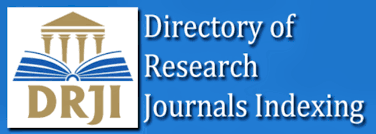THE IMPACT OF EMPLOYABILITY POLICIES ON REDUCING THE YOUTH UNEMPLOYMENT RATE: AN ANALYSIS BASED ON FIGURES IN THE ANGOLAN CONTEXT (2019-2023)
Keywords:
Employment policies, Employability, Youth unemployment rateAbstract
The aim of this article is to analyze, based on official figures, the role of the “Promoting Employability” program in getting young people into the labour market and its impact on reducing unemployment rates among young people aged 15-24 in Angola in the period 2019-2023. The research was methodologically based on qualitative and quantitative approaches, using document analysis and descriptive statistical analysis, with the Ministry of Finance repository, the National Statistics Institute (INE) database and the Ministry of Administration, Labor and Social Security (MAPTSS) reports as data sources. The results of the research show that the “Promoting Employability” program was successful in terms of its objectives, benefiting 120 244 individuals with vocational training and internships, training in entrepreneurship and business management techniques, microcredit and support for cooperatives/young people, and contributing to the creation of more than 118 jobs. However, in terms of its impact on the economic context, the program has not helped to reduce the high rate of youth unemployment, since, according to INE data, unemployment rates among young people aged between 15 and 24 have tended to rise, and stood at between 54.40% and 58.30% in the period under review.
References
Abdiraiymova, G. S., & Burkhanova, D. K. (2016). Sociology of Youth. In Almaty: Qazaq University.
Asian Development Bank [ADB]. (2006). Impacto Evaluation: Methodological and Operational Issues. www.adb.org/economics
Awan, A. G., & Ibrahim, M. A. (2015). Role of Micro-Financing in Creation of Self-Employment in Pakistan: a Case Study of District Bahawalpur. Journal of Economics and Sustainable Development, 6(7), 38–44. https://iiste.org/Journals/index.php/JEDS/article/view/21463
Azeredo, B., & Alberto Ramos, C. (2022). Políticas Públicas de Emprego: experiências e desafios. Planejamento e Políticas Públicas - PPP, 12. https://www.ipea.gov.br/ppp/index.php/PPP/article/view/142
Banco Mundial. (2024, April 9). Angola: aspectos gerais. Banco Mundial. https://www.worldbank.org/pt/country/angola/overview
Bettencourt, R. (2014). Políticas para a Empregabilidade. Lisboa; Conjuntura Actual Editora.
Chen, H.-T. (1990). Theory-driven evaluations. Sage Publications.
Chinen, M., de Hoop, T., Alcázar, L., Balarin, M., & Sennett, J. (2017). Vocational and business training to improve women’s labour market outcomes in low‐ and middle‐income countries: a systematic review. Campbell Systematic Reviews, 13(1), 1–195. https://doi.org/10.4073/csr.2017.16
Dias, M., & Varejão, J. (2012). Estudo de Avaliação das Políticas Ativas de Emprego – Relatório Final. Lisboa
Doutor, C. (2016). Um olhar sociológico sobre os conceitos de juventude e de práticas culturais: Perspetivas e reflexões. Última Década, 24(45), 159–174. https://doi.org/http://dx.doi.org/10.4067/S0718-22362016000200009
Dye, T. R. (2017). Understanding Public Policy (Fifteenth Edition). Pearson.
Fiess, N., Alnafeesi, A., Barroso, R., Calderon, C., Didier, T., Engelke, W., Nielsen, H., & Trost, M. (2018). Angola Country Economic Memorandum (CEM) : towards economic diversification. https://documents.worldbank.org/en/publication/documents-reports/documentdetail/512551560455721028/angola-country-economic-memorandum-cem-towards-economic-diversification
Gonçalves, C. M., Parente, C., Veloso, L., Gomes, S., & Januário, S. (1998). Os jovens, a formação profissional e o emprego: resultados de uma investigação internacional. Sociologia: Revista Da Faculdade de Letras Da Universidade Do Porto, 8, 137–178. https://repositorio.iscte-iul.pt/handle/10071/5602
Görlich, D., Stepanok, I., & Al-Hussami, F. (2013). Youth Unemployment in Europe and the World: Causes, Consequences and Solutions. Institute for the World Economy, 1–11.
Governo de Angola. (2016). Linhas Mestras para Definição de uma Estratégia para a Saída da Crise Derivada da Queda do Preço do Petróleo no Mercado Internacional.
Hirshleifer, S., Mckenzie, D., Almeida, R., & Ridao-Cano, C. (2016). The Impact of Vocational Training for the Unemployed: Experimental Evidence from Turkey. The Economic Journal, 126(597), Art. WPS6807. https://doi.org/https://doi.org/10.1111/ecoj.12211
Honorati, M. (2015). The Impact of Private Sector Internship and Training on Urban Youth in Kenya (7404; Policy Research Working Paper). https://hdl.handle.net/10986/22661
Instituto Nacional de Estatística de Angola, Inquéritos de Emprego em Angola (de 2019 a 2023). Disponíveis em: https://www.ine.gov.ao/
Instituto Nacional de Estatística de Angola. (2016). Projecção da População Angolana 2014-2050. Disponíveis em: https://www.ine.gov.ao/
Instituto Nacional de Estatística de Angola. (2020). Pobreza Multidimensional em Angola – Relatório Final. Disponível em: https://www.ine.gov.ao/
Kehily, M. J. (2007). Understanding youth: perspectives, identities and practices. Open University Press.
Keynes, J. M. (2010). The General Theory of Employment, Interest and Money. Signalman Publishing. https://pt.annas-archive.org/md5/181221c07f29f1264de93db057f1dfe3
Korkmaz, S. (2020). Unemployment and Economic Growth: The Casuality Relationship between Unemployment and Economic Growth in the OECD Countries. In H. K. S. Lecuna (Ed.), Dynamic Optics in Economics: Quantitative, Experimental and Econometric Analyses (pp. 151–163). Peterlang. https://www.researchgate.net/publication/348759339_Unemployment_and_Economic_Growth_The_Casuality_Relationship_between_Unemployment_and_Economic_Growth_in_the_OECD_Countries
Martins, D., & Vicente, P. (2021). Estudo Especializado sobre do Mercado de Trabalho e Actividades Económicas em Angola. https://www.ey.com/pt_ao/strategy/estudo-especializado-sobre-o-mercado-de-trabalho-e-actividades-economicas
Mayne, J., & Befani, B. (2014). Process Tracing and Contribution Analysis: A Combined Approach to Generative Causal Inference for Impact Evaluation. Institute of Development Studies, IDS Bulletin, 45(6), 17–36. https://doi.org/doi.org/10.1111/1759-5436.12110
Mayombe, C. (2023). Promoting youths’ skills acquisition through experiential learning theory in vocational education and training in South Africa. Higher Education, Skills and Work-Based Learning, 14(1), 130–145. https://doi.org/10.1108/HESWBL-10-2022-0216
Mendes, C. M. A. R. A. (2013). A política pública de estágios profissionais na administração local: avaliação do impacto na empregabilidade dos jovens portugueses [Dissertação de Mestrado em Administração Pública, Instituto Superior de Ciências Sociais e Políticas, da Universidade de Lisboa]. http://hdl.handle.net/10400.5/6409
Ministério do Planeamento de Angola. (2018). Plano de Desenvolvimento Nacional 2018-2022. Luanda.
Montiel, E. M., Cunningham, W., & Ngarachu, M. (2023). Bons Empregos para a Juventude Angolana: oportunidades, desafios e orientações de Políticas – Relatório De Política. https://documents.worldbank.org/en/publication/documents-reports/documentdetail/099210502232360806/p174737020b1d101709def0fd1e971879f0
O’Higgins, N. (2001). Youth unemployment and employment policy: a global perspective. International Labour Office.
Oshiro, F., & Marques, R. M. (2016). O conceito de desemprego e sua medição no século XX / The concept of unemployment and its measurement in the twentieth century. Textos & Contextos (Porto Alegre), 15(2), 293. https://doi.org/10.15448/1677-9509.2016.2.25347
Pais, J. M. (1990). A construção sociológica da juventude: alguns contributos. Análise Social, 25, 139–165. https://doi.org/http://analisesocial.ics.ul.pt/documentos/1223033657F3sBS8rp1Yj72MI3.pdf
Pedroso, P., Ferreira, A. C., Dornelas, A., Estanque, E., Centeno, M., Novo, Á., & Henriques, M. (2005). Acesso ao Emprego e Mercado de Trabalho: formulação de políticas públicas no horizonte de 2013. https://hdl.handle.net/10316/79974
Pereyra, M., Aboal, D., & Rovira, F. (2021). How effective are training and mentorship programs for entrepreneurs at promoting entrepreneurial activity? An impact evaluation. SN Business & Economics, 1(7), 97. https://doi.org/10.1007/s43546-021-00102-4
Rafik, M., & Brahim, B. (2023). The Concept of youth: a sociological eye. Afak for Sciences Journal, 8(3), 215–234. https://www.researchgate.net/publication/371452056
Reinert, J. N. (2001). Desemprego: Causas, Consequências e Possíveis Soluções. Revista de Ciências Da Administração, 3(5), 45–48. https://doi.org/https://periodicos.ufsc.br/index.php/adm/article/view/8065
Sahnoun, M., & Abdennadher, C. (2018). The Efficiency of Active Labor Market Policies: A Comparative Analysis of Tunisia and OECD Countries’. International Economic Journal, 32(4), 589–609. https://doi.org/10.1080/10168737.2018.1548633
Sahu, T. N., Agarwala, V., & Maity, S. (2024). Effectiveness of microcredit in employment generation and livelihood transformation of tribal women entrepreneurs: evidence from PMMY. Journal of Small Business & Entrepreneurship, 36(1), 53–74. https://doi.org/10.1080/08276331.2021.1928847
Sen, A. (2018). Desenvolvimento como liberdade. Companhia das Letras. https://pt.annas-archive.org/md5/e268599001c0c7f84a7ad15d3862bfb0
Souza, C. Z. V. G. (2004). Juventude e contemporaneidade: possibilidades e limites. Última Década, 12(20), 47–69. https://doi.org/https://www.scielo.cl/scielo.php?script=sci_arttext&pid=S0718-22362004000100003
Trancoso, A. E. R., & Oliveira, A. A. S. (2016). Aspectos do conceito de juventude nas Ciências Humanas e Sociais: análises de teses, dissertações e artigos produzidos de 2007 a 2011. Pesquisas e Práticas Psicossociais, 11(2), 278–293. http://pepsic.bvsalud.org/scielo.php?script=sci_arttext&pid=S1809-89082016000200002
Tria, D., Harun, M., & Alam, M. (2022). Microcredit as a strategy for employment creation: a systematic review of literature. Cogent Economics & Finance, 10(1), 1–17. https://doi.org/10.1080/23322039.2022.2060552
Turgut, E. (2021). Unemployment and Factors Affecting Unemployment in Developing Countries. In O. Ucan (Ed.), Discussions Between Economic Agents: Panel Data Analysis (pp. 7–38). Iksad Yayınevi. https://www.researchgate.net/publication/353716157
Weiss, C. H. (1997). Theory-based evaluation: Past, present, and future. New Directions for Evaluation, 76, 41–55. https://doi.org/https://doi.org/10.1002/ev.1086
Zylberstajn, H., & Neto, G. B. (1999). As Teorias de Desemprego e as Políticas Públicas de Emprego. Estudos Econômicos, 29(1), 129–149. https://www.revistas.usp.br/ee/article/view/117216
Downloads
Published
How to Cite
Issue
Section
License
Copyright (c) 2025 BENDITO MUHUSSO

This work is licensed under a Creative Commons Attribution-NonCommercial-ShareAlike 4.0 International License.

























